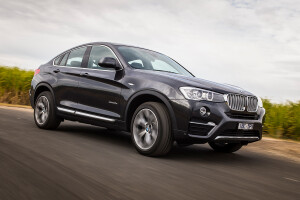Latest Review
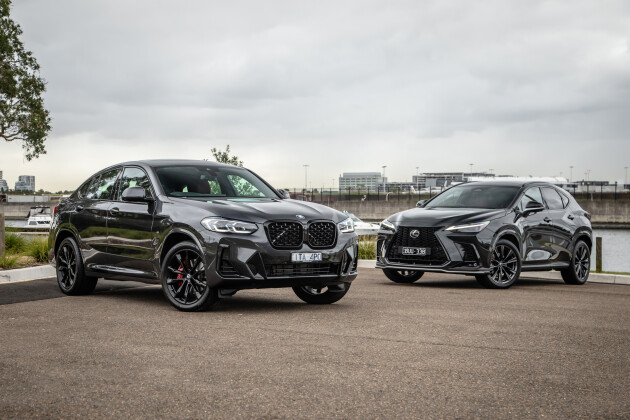
2022 BMW X4 vs Lexus NX comparison review
The new Lexus NX goes up against the BMW X4 coupe SUV for the mid-spec SUV title.
We’re into round two of the battle between the BMW and Lexus mid-size SUVs. A few weeks ago I pitted the BMW X3 30e and Lexus NX 450h plug-in hybrid pairs against one another and the Lexus came out the winner owing to its lower price, better ownership proposition and impressive driveline. The BMW was more fun to drive but, as you may have seen (and I will recap through this review), BMW has rather shot itself in the foot with the pricing.
And I wrestled with the idea of whether a plug-in hybrid is even worth it (spoiler: probably not).
Round two is between the middle of the two ranges and in the BMW’s case, the tweak in the range, the SUV-coupe (or SAV in BMW-speke) BMW X4 xDrive 30i and the non-hybrid Lexus NX350. Both are all-wheel drive, both are turbo fours and both bring a lot of tech and driving appeal to the table. One imagines this battle should be closer.
Pricing and Features
As with my review of the NX450h against the X3 30e, the BMW costs quite a bit more than the Lexus. The 30e also had a considerable, self-inflicted problem in that the pure-electric iX3 was only ten per cent more expensive while being a lot cheaper to run. No, not everyone who looks at the 30e would want a BEV, but a lot would.
Still, the X4 30i M Sport is a not-inconsiderable $97,900 before on-road costs, a good eight grand more than the X3. Hang on a moment, you’re saying (okay, a few of you), the X4 isn’t really the same as an NX, shouldn’t this comparison be apples with apples?
Yes and no. The NX falls between a trad SUV with a more upright stance and the BMW’s coupe vibe, perhaps to further distance it from the related Toyota RAV4. It’s also chasing that more stylish look with the faster rear glass and big bluff front end. The X4 is an out-and-out SUV coupe (cue my teeth grinding) and so you pay more for that. Either way, the X3 and X4 are both considerably more expensive than the NX350.
In the X4 you get 20-inch wheels, a 12-speaker stereo, multi-zone climate control, keyless entry and start, adaptive damping, front and rear parking sensors, adaptive cruise control, cameras in all directions (including a reversing camera) powered front seats, sat-nav, auto LED headlights with auto high beam, digital dashboard, leather trim, auto parking, powered tailgate, powered windows and mirrors, auto wipers, head-up display and run-flat tyres instead of a spare.
BMW has just one free colour, Alpine White, while the rest cost a near-disgraceful $2000. The actually disgraceful $4000 for Tanzanite Blue does buy you a gorgeous colour, but seriously.
The X4 is an out-and-out SUV coupe and so you pay more for that. Either way, the X3 and X4 are both considerably more expensive than the NX350
The Executive Package (16 Harman Kardon speakers, heated front and rear seats) costs $5000, the M high gloss Shadow Line $500 (fitted), the also-fitted Visibility Package (Laser Headlights, metallic paint and, bizarrely, a sunroof) is an almost reasonable $4810 when you see what you get. You can also drop down to 19-inch wheels for nothing, add a $3100 panoramic glass roof on its own or get more leather for $2400.
Lexus clobbers the BMW on pricing, starting at $77,900 before on-road costs. The spec is similar, so the main differences are dual-zone climate control, two fewer speakers, active noise cancelling, blacked-out grille and heated front seats. The BMW has a little more on balance, but hot damn, it should for all that extra cash. The NX is pretty skinny on things like the awesome (optional) laser lights, though.
Options for the Lexus include a panoramic sunroof, the sole option in the falsely-named Enhancement Pack 1 while Enhancement Pack 2 is indeed a pack with the sunroof, digital rear vision mirror (like a Range Rover), 17-speaker Mark Levinson stereo and heated steering wheel, adding $6000 to take the Lexus a little closer to the X4. Our test car was fitted with the second pack but was still twenty grand less than the specced-up BMW.
Two out of eight available colours are free on the Lexus, the rest also costing far too much at $1750.
The Lexus clobbers the BMW on pricing … The spec is similar. The BMW has a little more on balance, but hot damn, it should for all that extra cash
BMW’s 12.3-inch touchscreen is powered by the OS 7 version of iDrive which, in isolation, is pretty good but OS 8 is better. The system features a bunch of Connected Drive services, digital radio and wireless Apple CarPlay and Android Auto, something the Lexus doesn’t have as it sticks with USB connectivity. Having said that, the CarPlay connectivity can be flaky on OS 7, but behaved itself on this particular car.
Lexus’ massive 14.0-inch screen looks a lot bigger because it’s housed in an elephant’s ear sticking out of the dashboard. It’s clear, though, and reasonably easy to use once you work out there’s no home screen. The menu targets need to stand out a little more but apart from that, it’s nice. Gives you a little insight into what the largest car-maker in the world can do when you line it up next to the garbage head units in Toyotas.
It does have a really annoying habit of expecting you to wait until the system has completely started up before it will see the iPhone. I kept having to unplug the phone and the cable before the head unit would see the phone, which is a small thing but spectacularly annoying when you just want to get going.
Also annoying are both the internal and external door handles or, perhaps more appropriately, door operation switches. To get into the car, you grab the handle like you would the BMW’s and pull it. And then feel like a complete idiot. You have to make contact with a soft switch on the inside of the panel, there’s a delay and then it opens. When you want to get back out, there’s a type of rocker switch that you can either push with your thumb or contort yourself around to pull it out and, again, it’s an electric switch with a delay that messes with your head. Helps with the safe exit thing, but even having had an NX, then not, then gone back to this second one, it’s still annoying.
I guess you’ll get used to it, but the external door handles feel unnecessary. Why have such a big thing to grab when you could just do what BMW has done on the 4 Series? Also, and this is as subjective as it gets, you don’t get that comforting ka-clonk when the car locks or unlocks. Which is unsettling.
The NX has eight airbags (including driver’s knee and centre bag to lessen head clashes in side impacts), the usual ABS and stability controls, forward auto emergency braking (AEB), lane-keep assist, intersection assist, forward collision warning (low and high speed), post-collision braking, blind-spot monitoring, road sign recognition and safe exit assist. The Lexus doesn’t yet have an ANCAP rating but I’ll be extremely surprised if this spec doesn’t earn it all five available stars.
BMW counters with seven airbags (including driver’s knee), blind-spot monitoring, forward collision warning, reverse cross-traffic alert, forward cross-traffic alert, lane departure warning, lane-keep assist and speed sign recognition. The five-star ANCAP rating dates back to 2018. Given the changes in ANCAP rules since 2018, it’s unlikely the X4 with this list of features would make five stars, which I maintain is confusing for buyers and not necessarily an accurate reflection of actual crash performance.
Both feature AEB systems with pedestrian detection while the Lexus adds daytime cyclist detection. And they both have two ISOFIX points and three top-tethers for child seats.
Comfort and Space
The BMW claws back a little in the cabin. Both have nicely shaped rear seats and both have diving rooflines limiting headroom. The X4’s longer wheelbase provides usefully more leg and knee room than does the Lexus, which is tight compared to the BMW’s more spacious rear.
Both cars are comfortable four-seaters because the middle seat is deeply unattractive for anyone with two buttocks. The BMW is slightly better because the centre console doesn’t intrude as much but both have hefty transmission tunnels and perch-like middle seats. Putting someone there would also knock out the centre armrest with its two cup holders, too, which is obviously terrible behaviour. Headroom for me was almost identical between the two and I’m a scooch under 180cm.
Both had a sunroof fitted but I don’t think that made a remarkable difference to the cranial space.
For devices, you’ll find two USB-C ports in the rear of the BMW, a USB-C port in the centre console bin and a USB-A port with 12V plug under the centre stack. The Lexus has a 12V socket in the rear with two USB-C chargers and the USB-C and USB-A ports are handily twinned right on top of the wireless charging pad.
All four doors feature big bottle holders in the BMW while the Lexus’s are smaller. Both have two cup holders up front nestled in the tidy centre consoles. Both have very comfortable seating for front occupants, but the Lexus seats look a bit sportier, especially in red. Which this BMW also had, but the seats were less exciting to look at while having the slightest of edges in comfort and adjustment.
The BMW is slightly better in the back because the console doesn’t intrude as much but both have hefty transmission tunnels and perch-like middle seats
The NX’s boot takes 520 litres with the seats up and 1411 with them down. The loading aperture is wide and easily accessed via the powered tailgate. The BMW’s storage space is down on its X3 twin, but not by much. A near undetectable 525 litres in the X4 just beats the NX’s boot and there’s a 29-litre difference with the seats down, in the BMW’s favour.
On the Road
Here in the cheapish seats, you have two four-cylinder turbos with the barest minimum of electrification on the BMW in the form of energy recovery from braking. The Lexus doesn’t suggest it has any of that, but it’s not much on the BMW, if you know what I’m saying.
Behind the NX’s giant grille is a 2.4-litre turbo four with 205kW and a very healthy 430Nm, way more than the BMW. A rarity in the NX range, the 350 F Sport is not a hybrid and I’ll be very interested to see how many people actually buy non-hybrids given the carnage in the (related) RAV4’s petrol-only sales. Lexus says you’ll burn 7.0L/100km but I don’t think so. The best I could manage (without driving like a loon, I might add) was 11.2L/100km.
I can’t really explain the gap. The Lexus feels a lot slower than the 100km/h sprint figures suggest, is noisier (we’re talking small increments here, it’s still very quiet) and the transmission feels really gloopy. I had to double-check it wasn’t a CVT, something Lexus is fond of and which you will find on the hybrids.
The German starts with a smaller engine, the 2.0-litre B48 also found in the 20i and 30e (and pretty much any four-cylinder BMW), but tuned up to 185kW and 350Nm. It matches the Lexus with all-wheel drive and also has a proper eight-speed automatic transmission from ZF and it’s excellent. BMW claims 7.9L/100km and I got 8.2L/100km. So that’s a solid win for the BMW on fuel.
On the freeway the BMW is very quiet, with just a bit of rustling around the mirrors and all but the worst surfaces remaining well-damped
What’s more, despite the lower power and torque figures, the BMW is quicker to the benchmark 0-100km/h by well over half a second, suggesting a more sprightly overall performance despite a smaller than expected gap between the kerb weights of just 45kg.
Which leads me to my first observation about the pair’s more subjective qualities. The Lexus immediately feels heavier on the road, with less transparent steering feel and a lazier change of direction. While running very similar tyres, the NX has higher-profile, narrower rubber compared to the X4 but the ride isn’t markedly – if at all – better.
It feels a bit like its biggest target market, the US, had the final sign-off on the suspension tune whereas the German car – despite being produced in South Carolina – has a much more European tune that better suits Australian tastes and conditions.
On the freeway the BMW is very quiet, with just a bit of rustling around the mirrors and all but the worst surfaces remaining well-damped. The Lexus might have active noise cancellation but it’s not as successful as one might hope on the freeway, with wind and road noise coming out a little higher, at least to my dodgy ears.
The Lexus rolls and pitches more than X4, which feels much tauter where it counts but somehow manages to remain as composed as the softer Japanese machine on rough and nasty surfaces. I will express my admiration for the way both of them ride on those huge 20-inch rims. Given both feature adaptive damping, it shouldn’t be difficult for Lexus to consider Sport or Sport + tunes with a bit more tension in them.
When you switch to Sport in the BMW, it really does wake up. It feels a lot quicker and lighter on its feet, compared to both its own Comfort mode and the Lexus in any mode. The NX seems to struggle to get all the power to the wheels whereas the BMW’s drivetrain and chassis feel far more direct. The X4 is way more fun and enjoyable to drive but when you remember that Lexus always errs towards comfort, that makes a lot of sense. So for me, the BMW wins here – and handsomely – but the Lexus presents a clear choice of a more relaxed car.
Ownership
Lexus belts BMW out of the park with a five year, unlimited-kilometre warranty, which really should be the bare minimum on a premium car let alone one that costs so much more than the other. Lexus also offers three years or 45,000km of capped-price servicing for $495 per service, or $1485 over three years. Lexus will come and pick up the car from you or give you a loan car for the day whereas BMW will not, at least not for private buyers.
BMW’s three-year warranty is too short and it’s pathetic that the company is holding out from joining everyone else on the five-year bandwagon.
Three years or 40,000km of servicing on a pre-paid BSI plan will cost $1450 while a five year/80,000km plan, something Lexus hasn’t committed to, will cost $2010, ironing out at $402.50 per service – which isn’t as outrageous as you might have been expecting. Actually, compared to some rather less expensive brands, it’s not bad and neither is the Lexus number.
You get more with the Lexus aftersales party via its Encore package than you do from BMW
You can also upgrade to BSI Plus that covers more consumables but is, in my experience, a lot more expensive for a lot of what-ifs.
You get more with the Lexus aftersales party via its Encore package than you do from BMW, including Ampol fuel discounts, access to no-doubt tedious horse racing type events and a vague rewards benefit. The service loan car does it for me, though, with the longer warranty cementing the NX’s win for ownership.
VERDICT
I really like the BMW – I think it has the better driveline and is a better car to drive and, in news that will shock most people, has the smaller grille. I don’t really like the coupe rear-end, though, but that’s by the by and more about me than you.
When one contender turns up twenty grand cheaper for a similar specification, it’s not the fairest of fights but these cars are direct competitors.
Although the Lexus is not the car I would personally buy (I once went out to buy a Renault Megane and came out with a BMW 5 Series, and another time I planned buy a classic Alfa Romeo and somehow ended up with an MX-5 so cannot be trusted with real money), it’s a compelling proposition.
The NX is vastly better than the car it replaces, is comfortable, quiet and easy to live with once you get over the dumb door handles. The longer warranty further pounds the BMW into submission. There are plenty of specification points where the Lexus wins, too, but the on-the-road reality is that they’re closely matched.
But the winner – again – is the Lexus unless you’re wedded to the BMW badge or are after the one with the sharper, more engaging driving experience.
Specifications
News
-
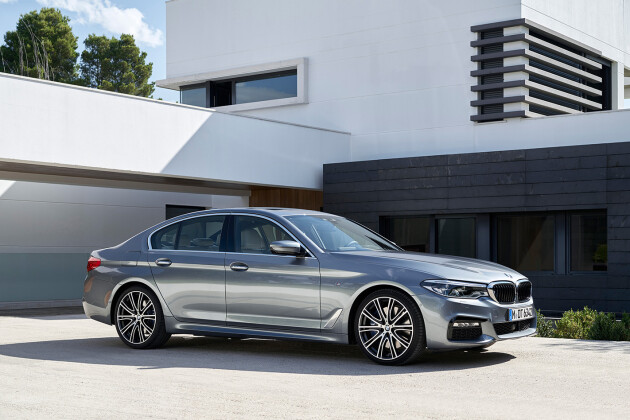 News
News2016-2020 X3, X4 and 5 Series recalled
A warning message may be displayed or the engine may fail entirely
-
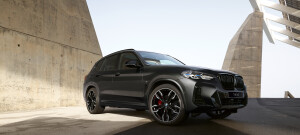 News
News2022 BMW X3 and X4 M40i Frozen Edition pricing and features revealed for Australia
Just 37 units will come to Australia at a $10,000+ premium over the base M40i
-
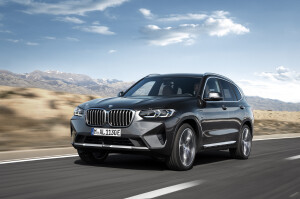 News
NewsBMW increases wait times for optional extras thanks to chip crisis
The ongoing parts shortage could push deliveries of certain models back to the second half of 2022
-
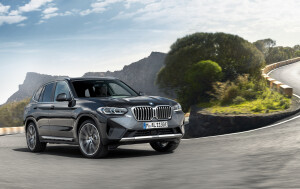 News
NewsBMW X3 and X4 pricing revealed - UPDATE
Popular mid-size SUV scores new looks, more tech, and safety
-
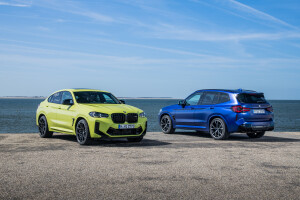
2022 BMW X3 and X4 M Competition models announced
-
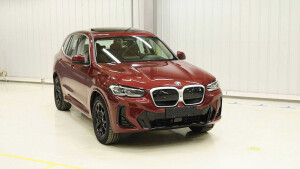
BMW X3/X4 LCI update, new 4 Series Gran Coupe days away from unveiling
-
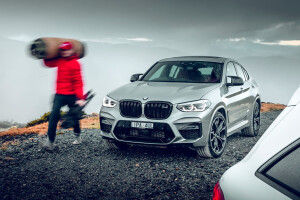
A one night stand with the BMW X4M Competition
-

This super SUV will obliterate most performance sedans


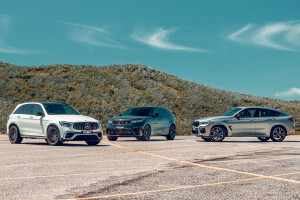
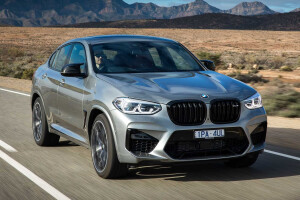
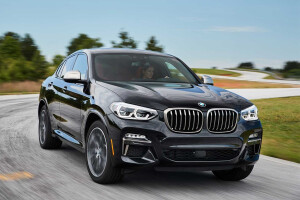
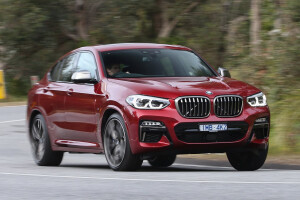
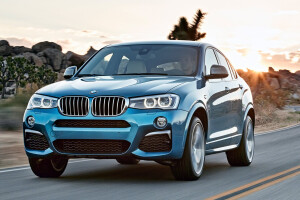
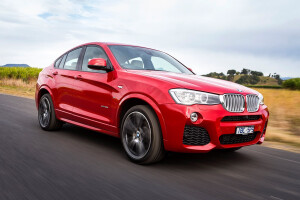
.jpg)
